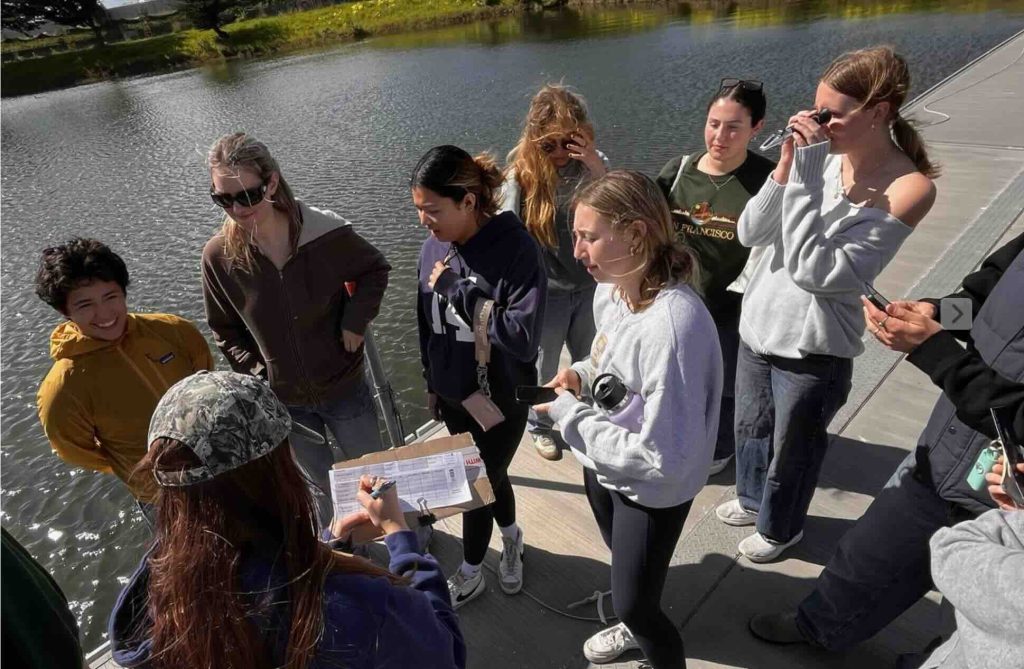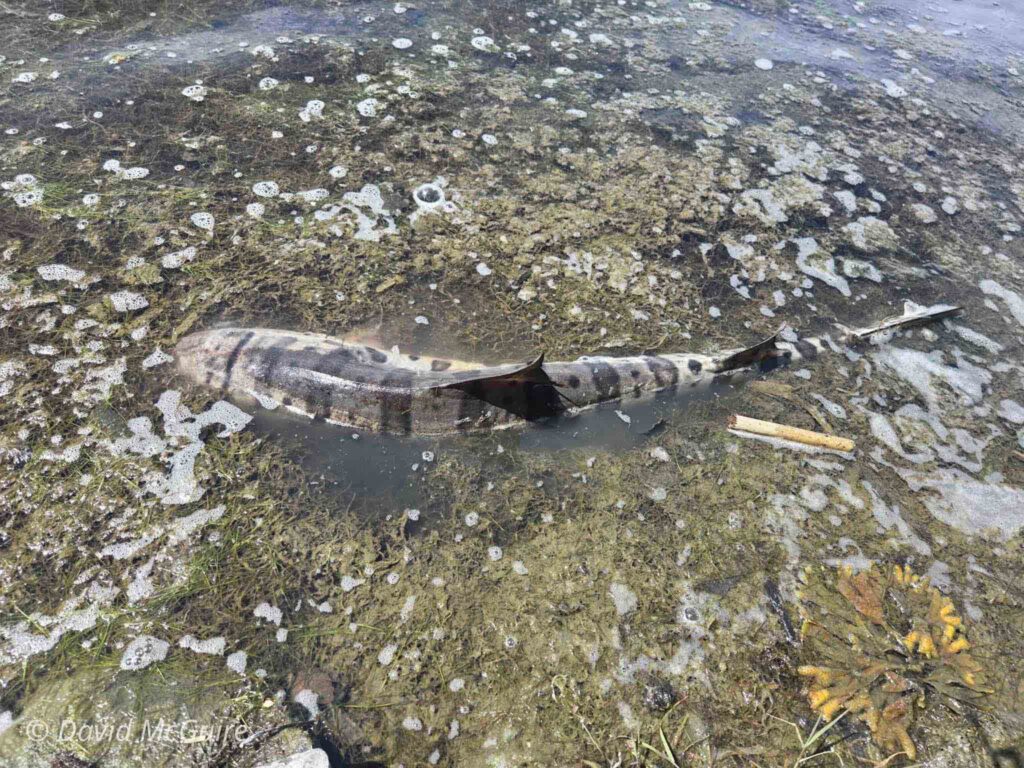The Aquatic Park Stewards project is a community-based program with our partners ( UC Berkeley, the City of Berkeley Parks and Recreation, the Friends of Five Creeks, and Friends of Aquatic Park including East Bay Parks, East Bay Disc Golfers, Waterside Works and the Berkeley Paddling and Rowing Club), to improve the conditions of the waterfront and engage the community on the importance of marine ecosystem health and impacts from pollution, sea level rise associated with climate change. The goal is to create a healthier marine ecosystem benefitting wildlife and the Berkeley community, and to restore the marine conditions and wetland habitat to support wildlife and biodiversity.
Begining in 2012, Shark Stewards has been tracking shark mortality and monitoring conditions and factors that may be responsible for recurring large-scale die-offs of sharks and rays in the San Francisco Bay. At least 5 large mortality events have been documented in the Bay since 2012. Beginning in 2017, following a massive die off of houndsharks and bat rays in the Aquatic Park lagoon in Berkeley, Shark Stewards has been investigating and attempting to identify causal factors through water quality analysis.
Runoff from the street and through storm drains impact water quality resulting in Harmful Algal Blooms and fish mortality. Our goal is to mitigate toxic impacts to the lagoon life in Aquatic Park, to create healthy conditions for wildlife, and create the first Shark Park by creating conditions for fish to flourish!
Supported by a grant from the UC Berkeley Chancellor’s Community Fund, we are conducting routine water quality testing and monitoring with UC Berkeley undergraduates from the Ocean Society and the Cal Surfrider Foundation Clubs. In 2024 the program expanded to include regular cleanups, wildlife recording and community days with invasive plant and native plantings.
Testing Includes:
- Dissolved Oxygen
- Salinity
- Conductivity
- pH
- Nutrients
- Water Level
- Water clarity
- Enterococcus

Education
We are also supporting onsite school visits with underserved youth from Berkeley and Oakland schools, engaging in marine education, and hands-on activities and conducting marine debris surveys and cleanups, exposing them to environmental threats and solutions.
We will also be demonstrating the water sampling and data collection techniques applied in our current study of the water quality in the Aquatic Park lagoon. During the cleanups we are also collecting marine debris data and recording items by category. We are also collecting and recording data on branding of commonly discarded plastics from Coca Cola, Nestle, Mars Palmolive etc, including food wrappers, single use bottles and containers etc (see below). Commonly littered on our sidewalks and streets, plastic ends up in our storm drains, flowing to Aquatic Park lagoons, the San Francisco Bay and ultimately, the ocean.
Wildlife Data Protection and Restoration
Shark and ray observations are made from shore and on SUP (leopard sharks and bat rays). These are added into our Sharks of California database.
The initial and ongoing focus of this project has been fish mortality, specifically leopard sharks and bat rays stranded. dying and dead from undefined causes. The Shark Watch records living and dead sharks and is investigating causal effects to large morbidity and mortality events. Aiding the California Department of Fish and Wildlife, we are collecting dead specimens for pathological analysis, determination of disease and working to mitigate causal factors.

Add a plant, invertebrate or animal into the Aquatic Park Project in iNaturalist.
With students and volunteers (including Waterside Works and the Berkeley Rowing and Paddling Club) we are observing and recording birds, and logging them on eBird.
Join us for a Beach Cleanup or on our Community Days
Park cleanups are held monthly on Sundays, usually the third Sunday of the month. Community Days will be April 26 at the Berkeley Bay Fest, and September 20 on California Coastal Cleanup Day. Follow our events, or sign up for our monthly newsletter.
Additional Links:
- The CleanSwell App: Download before you go to log data during the cleanup on the Shark Stewards Aquatic Park Project
- Gather data on plastics manufactured by major brands including: The Coca-Cola Company (Coke, Dasani water); PepsiCo Inc (Pepsi, Lays, Fritos, Doritos), Crystal Geyser; Danone North America (Danone, Evian water); The Clorox Company (Brita, Handi wipes, bleach and disenfectants; Nestlé USA, Inc (Evian, Perrier waters, Gerber, Nescafe); Mars, Incorporated (3 Musketeers, M&Ms, Snickers- many candies and gum wrappers); Mondelez Global LLC (Ritz, Clif, Chips Ahoy, Oreos, Tang); Colgate-Palmolive Company (Colgate, Toms, soap products); and The Procter & Gamble Company (Pampers, Tampax, Cleaning and paper products).
- Local Cleanup Coordinator contact info
- Tips for Educators, Youth Groups, and Parents
We are a volunteer program relying on donations for cleanup materials. Donate $10 to support the Healthy Bay Program to fund gloves, tools and clean up materials.
Support our campaign to mitigate the environmental impact of plastic and runoff on our oceans and beaches and restore health in the park and beyond to the Bay and Pacific Ocean. Learn more about the lawsuit with the Earth Island Institute holding the 10 largest single-use plastic polluters responsible for polluting the Pacific Ocean.